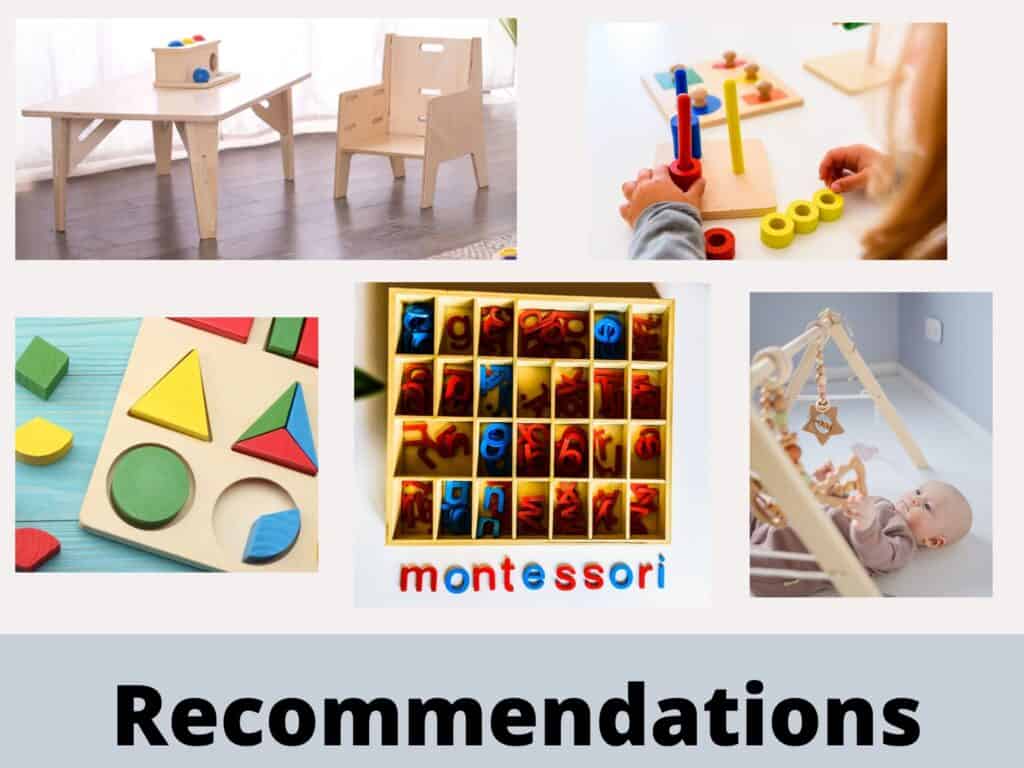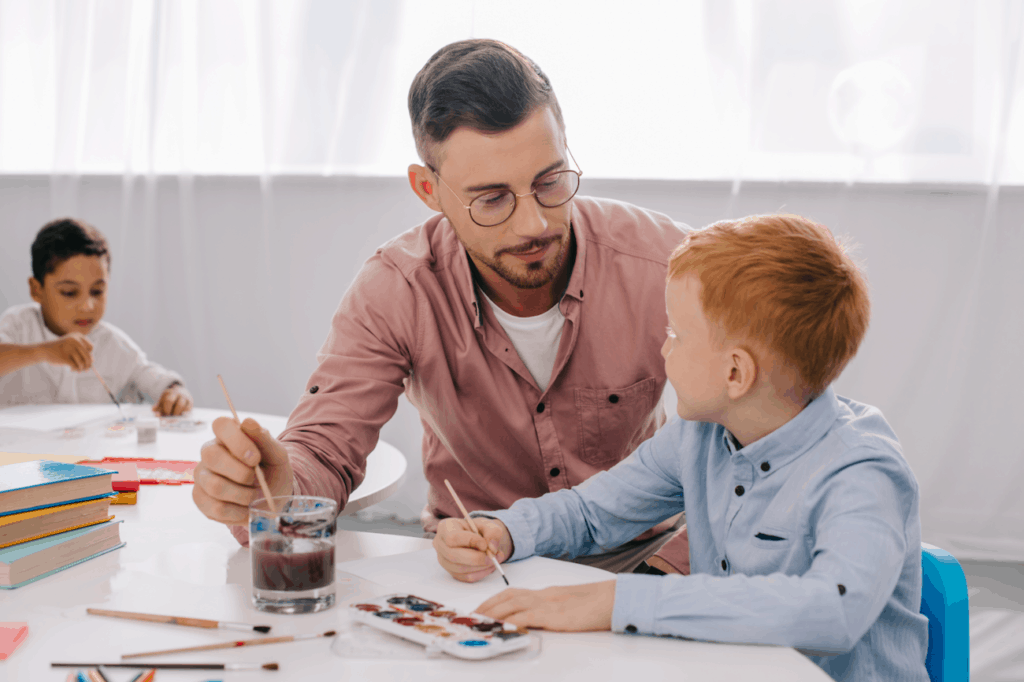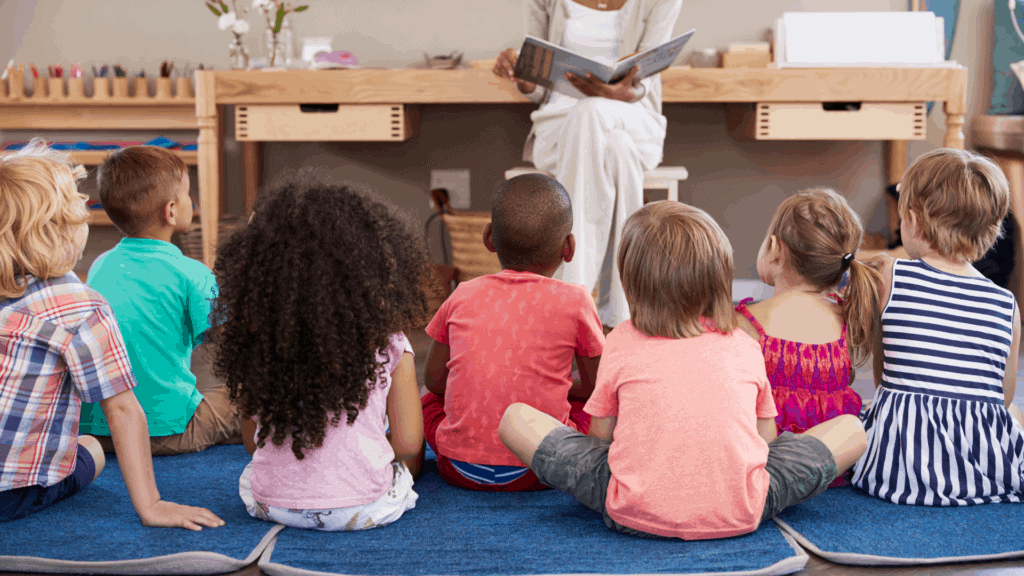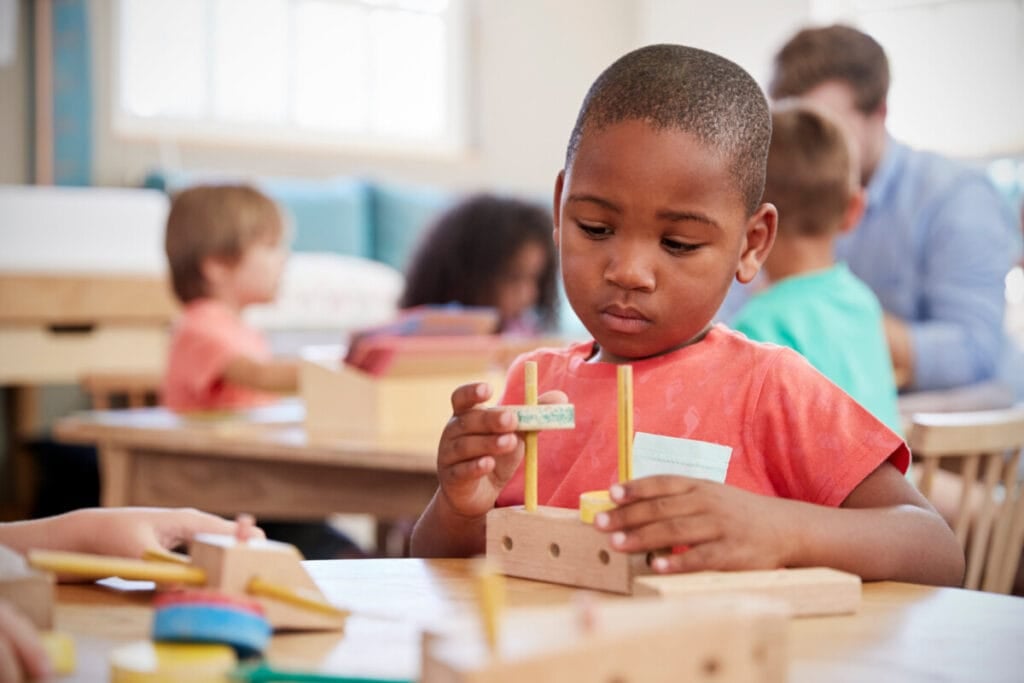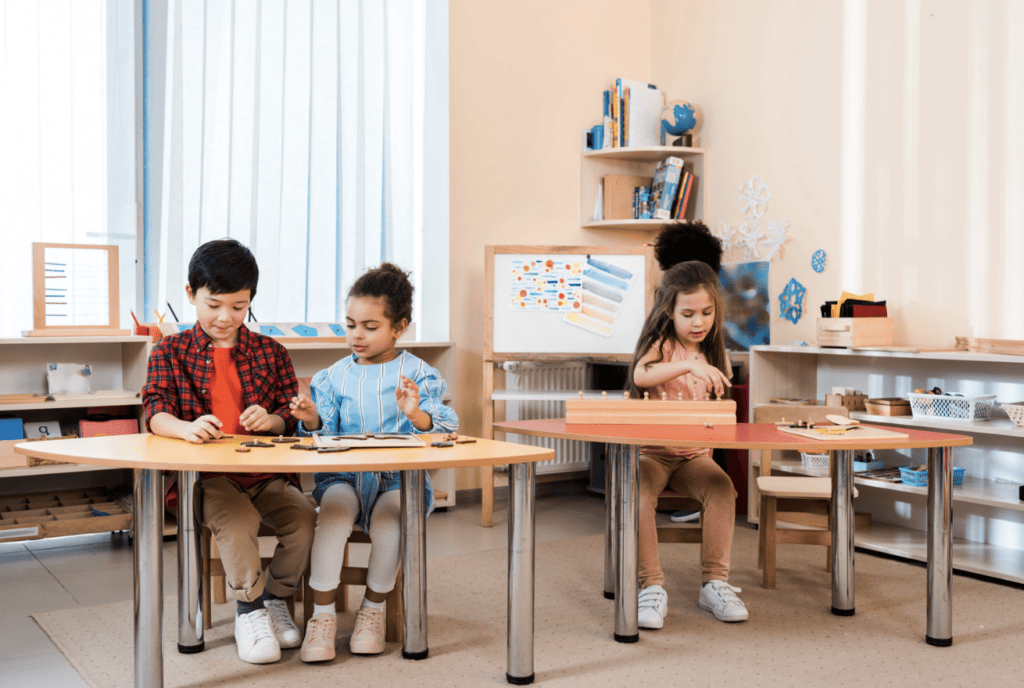
For Montessori techniques to be effective, they need to be adapted to suit different age groups. Children go through several distinct developmental stages from infancy to adolescence, and
Montessori schools have a unique challenge: catering to different age groups and letting children progress at their own pace while maximizing the benefits of mixed-age learning.
In this post, we’ll take a look at
Montessori Adaptations for Different Age Groups
Let’s examine how
Infants & Toddlers (0-3 Years)
The
Montessori educators believe classrooms should include materials that actively aid in the development of gross motor skills (such as crawling and walking), as well as fine motor skills (grabbing and holding). Activities for this age group also focus on early independence, such as self-feeding and dressing.
Teachers closely observe each baby and toddler to facilitate personalized interaction and growth. At such a young age, these students need equal parts hands-on care and the freedom to explore and learn independently.
Early Childhood (3-6 Years)
During this early childhood phase, students develop cognitive, socio-emotional, and language skills. As a result,
Regular storytelling, singing, reading, and work with the sounds and shapes of letters also help children develop language skills. Students begin to learn about cultures, nature, and basic science concepts at this age. The classroom emphasizes independence and respect for others while helping children develop relationships.
Elementary (6-12 Years)
Elementary-aged children are increasingly curious about the world around them. At this age,
Elementary
Adolescents (12+ Years)
Lastly,
At this point, studies become more rigorous, encouraging sophisticated critical thinking and independent research. The lessons incorporate skill-building and real-world education. Students are also encouraged to participate in discussions and debates and lead their own projects.
These strategies encourage students to get comfortable voicing their opinions, thinking critically, and
working collaboratively. This results in the strong development of social, emotional, and practical skills and academic preparedness.
Benefits of Adapting Montessori Education Throughout Childhood
There are many benefits to adapting Montessori education across all of the developmental stages. These methods are designed to foster a lifelong love of learning and, when properly adapted for each age group, can extend beyond the classroom and into adulthood.
By allowing children to make choices and take responsibility for their learning,
Montessori education also focuses on holistic development. Instead of solely prioritizing academic achievements, it places equal emphasis on social, emotional, cognitive, and physical development.
This comprehensive approach helps children develop a well-rounded skill set. The adaptability of the
Challenges and Considerations
Proper implementation is key when it comes to the
- Committing to teacher training and experience
Montessori educators need to be extremely well-versed in the
- Selecting appropriate learning materials and resources
The
- Crafting a carefully designed environment
Physically, the
When these aspects of the school are in place, they lay the groundwork for a thriving
Learn More About Montessori for All Ages
Montessori schools offer a dynamic, adaptable form of education that works well for many age groups, ranging from infancy to adolescence. The philosophy’s principles help children develop independence and a passion for learning that extends beyond the classroom.
Washington Montessori School offers comprehensive

Author Bio: Launa Schweizer is a dedicated educator and lifelong learner who is committed to making a positive impact on the lives of her students. She has over 30 years of experience working with children aged 18 months to 26 years. As the head of Washington
